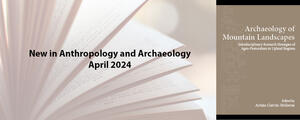
Nietzsche and Politicized Identities
Guest post by Rebecca Bamford and Allison Merrick
With Nietzsche, philosophy gets personal. Take, as an example, one of his more well-known remarks: in aphorism 6 of Beyond Good and Evil, Nietzsche describes every great philosophy as the confession of its originator and as a form of autobiography (BGE 6). Nietzsche’s concern in this aphorism is to point out that our philosophical lines of inquiry matter: they reveal us as they constitute us. Indeed, in this aphorism Nietzsche challenges us, further still, to notice the lack of awareness and involuntariness involved in current philosophers’ incorporating of the personal into their—our—practice of philosophy. Nietzsche opens space in which we may consider how to respond to ways in which the personal already forms a constituent part of our philosophical and political engagements. Our volume of essays, Nietzsche and Politicized Identities, takes this aphorism as its inspiration as it explores how lived experiences are a valuable component of scholarly engagement with politicized identities.
One way in which our authors take on this charge is by considering identity formation and development. How, for Nietzsche, do varying modes of identity form and acquire legitimacy? Such a question is tied to conceptual and textual interpretation questions concerning Nietzsche’s thinking on subjectivity and drive psychology. If it is the case that Nietzsche contests a unitary subject and offers an account of the sense of self as a composite of competing, often conflicting, drives, then what sense can we make of identity and of its role as the locus of agency or action? Any cogent answer to these questions requires an explanation of the disjunction between Nietzsche’s attempts to dissolve the self into a fluid, fluctuating set of drives, and the stability of a unified and autonomous sense of ourselves as agents. Here some of our contributors also consider in what ways our philosophical accounts of ourselves serve to constrain us or to limit our conceptions of what is possible. We might even begin to imagine how our understanding of ourselves and our social environment might be reshaped.
Another core question addressed by contributions to our volume of essays is whether Nietzsche’s engagement with questions of politicized identities and his wider political thought are best viewed as descriptive, or whether his philosophy offers us a therapeutic or even normative political agenda. Authors explore whether Nietzsche simply helps us to better diagnose the ills of modernity, or whether he offers us a means of redress for the conditions in which we find ourselves. Can we deploy Nietzsche usefully in support of political action, and if so, in what ways — and to what extent is such action limited by Nietzsche’s own prejudices and presumptions? What do we get from Nietzsche that we cannot get from other political philosophers and theorists whose contemporary political projects clearly and consistently drive at egalitarian or democratic ends?
Our volume appraises Nietzsche’s contemporary relevance in understanding, and responding effectively to, some key social and political issues that are inextricable from politicized identities in their diversity and intersectionality. We recognize that not all topics and issues could be covered in any single volume; moreover, Nietzsche’s philosophy is not unproblematic, nor necessarily always the best or only tool for seeking social empowerment, or for pursuing projects of social justice. Yet we think Nietzsche’s thought may still be useful: continuing to ask when and why political philosophy and theory grounded in Nietzsche’s philosophy can facilitate liberatory work may make a meaningful difference in people’s lives and experiences. It may also help to sustain further conversations on how to address contemporary social injustices. We hope that this volume achieves just that.
Rebecca Bamford is Reader in Philosophy at Queen's University Belfast and the author (with Keith Ansell-Pearson) of Nietzsche's Dawn: Philosophy, Ethics, and the Passion of Knowledge. Allison Merrick is Associate Professor of Philosophy at California State University, San Marcos.


